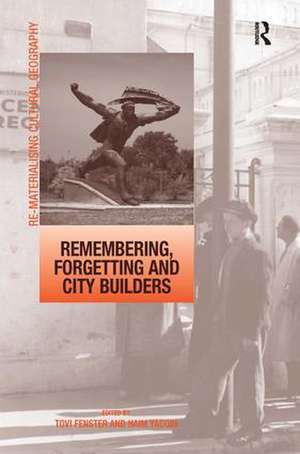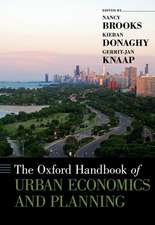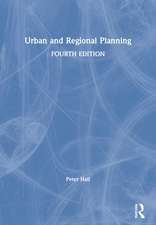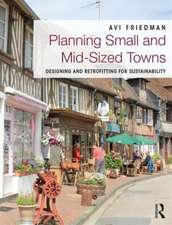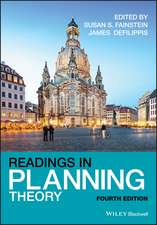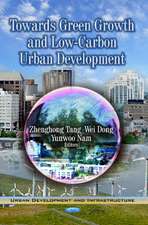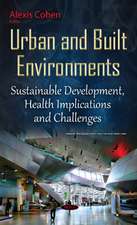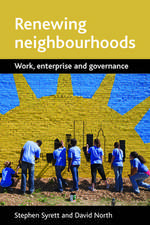Remembering, Forgetting and City Builders
Autor Haim Yacobi Editat de Tovi Fensteren Limba Engleză Hardback – 28 aug 2010
| Toate formatele și edițiile | Preț | Express |
|---|---|---|
| Paperback (1) | 110.22 lei 6-8 săpt. | |
| Taylor & Francis – 28 noi 2016 | 110.22 lei 6-8 săpt. | |
| Hardback (1) | 249.77 lei 6-8 săpt. | |
| Taylor & Francis – 28 aug 2010 | 249.77 lei 6-8 săpt. |
Preț: 249.77 lei
Preț vechi: 297.57 lei
-16% Nou
Puncte Express: 375
Preț estimativ în valută:
47.80€ • 49.38$ • 39.76£
47.80€ • 49.38$ • 39.76£
Carte tipărită la comandă
Livrare economică 19 martie-02 aprilie
Preluare comenzi: 021 569.72.76
Specificații
ISBN-13: 9781409406679
ISBN-10: 1409406679
Pagini: 224
Dimensiuni: 156 x 234 mm
Greutate: 0.57 kg
Ediția:1
Editura: Taylor & Francis
Colecția Routledge
Locul publicării:Oxford, United Kingdom
ISBN-10: 1409406679
Pagini: 224
Dimensiuni: 156 x 234 mm
Greutate: 0.57 kg
Ediția:1
Editura: Taylor & Francis
Colecția Routledge
Locul publicării:Oxford, United Kingdom
Notă biografică
Tovi Fenster, Tel Aviv University, Israel and Haim Yacobi, Ben Gurion University, Israel
Recenzii
'Overall, this volume provides fascinating and insightful essays covering a variety of topics and issues from around the world and utilising a number of theoretical frameworks to analyse specific cities.' Urban Studies
Cuprins
Introduction, Haim Yacobi, Tovi Fenster; Chapter 1 Remembering Forgotten Landscapes: Community Gardens in New York City and the Reconstruction of Cultural Diversity, Efrat Eizenberg; Chapter 2 1This chapter was originally published in: Haim Yacobi, “From State-Imposed Urban Planning to Israeli Diasporic Place: The Case of Netivot and the Grave of Baba Sali”, in Julia Brauch, Anna Lipphardt and Alexandra Nocke (eds) Jewish Topographies: Visions of Space, Tradition and Place (Aldershot: Ashgate, ), 63–82., Sachin Haism; Chapter 3 Neighbourhood and Belonging: Turkish Immigrant Women Constructing the Everyday Public Space, Eda Ünlü-Yücesoy; Chapter 4 1Another version of this chapter has been published in: Ismael Abu-Saad and Oren Yiftachel, eds. HAGAR Studies in Culture, Polity and Identities, 8/2 Special Issue: Bedouin-Arab Society in the Negev/Naqab: Studies in Policy, Resistance and Development (Beersheba: Ben Gurion University, ), 93–120., Safa Abu-Rabia; Chapter 5 One Place – Different Memories: The Case of Yaad and Miaar, Tovi Fenster; Chapter 6 The Reconstructed City as Rhetorical Space: The Case of Volgograd, Elena Trubina; Chapter 7 *This chapter is a modified version of my Hebrew-language article “Se'ol: Hebetim shel havnayat zehut be-emtsa'ut ha-nof ha-ironi”, in Zikaron, Hashkahah, ve-Havnayat ha-Merhav, ed. Haim Yacobi and Tovi Fenster (Jerusalem: Hakibbutz Hameuchad and Van Leer Institute, forthcoming) (Hebrew)., Guy Podoler; Chapter 8 “We Shouldn’t Sell Our Country!”: The Reconfiguration of Jewish Urban Property and Ethno-National Political Discourses and Projects in (Post)Socialist Romania, Damiana Gabriela Otoiu; Chapter 9 Forgetting and Remembering: Frankfurt’s Altstadt after the Second World War, Marianne Rodenstein; Chapter 10 1This text is based on ongoing research regarding colonial architecture and urbanism in the Democratic Republic of the Congo and informed by a series of fieldtrips to Lubumbashi in the period 2000–2007. It forms a more concise and slightly modified version of a paper that was originally presented at the 1st symposium of the Ghent Africa Platform (GAP) in December 2007 and consequently published in Afrika Focus, 1 (2008): 11–30. I kindly thank the editors of Afrika Focus for their kind permission to republish this text., Johan Lagae; Chapter 11 Epilogue The Fragility of Memory and its Remedy Through Spatial Practices, Tali Hatuka;
Descriere
Bringing together a range of case studies from North America, South Asia, East Europe and the Middle East, this book critically explores how urban spaces are designed, planned and experienced in relation to the politics of collective and personal memory construction.
